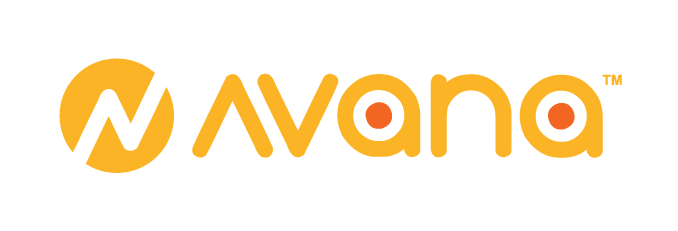5 Tools to Digitalize Your Brand
Digitalization. This word seems to be the “hot new thing” that every business needs to get involved in. Building webstores, automation and a variety of other modern-sounding words have all mushroomed out of the cloud of “digitalization”. But what does digitalization really mean?
Digitalization, very simply, means taking manual business processes and improvising technology to make them more efficient. For example, as a business owner, instead of requesting your staff to submit their expense claims to you in person, make use of one of the many expense claim softwares or applications out there, such as Expensify or AltHR. This will help save time, manual effort and perhaps even cost for both you and your staff.
If you can think of any manual process in your business that needs to go digital, chances are there is a tool already out that can help you to do so. Now, let’s deep-dive into 5 tools that you can utilize to digitalize your brand! In this write-up, we’re going to focus on the operational ends of business, looking into how you can digitalize your business model, team management, HR functions and more!
- AVANA

A super handy tool for e-commerce business owners, AVANA is a social commerce platform that helps business owners sell through websites, Facebook, Instagram, WhatsApp and Telegram. With AVANA, you can connect the product catalog on your website directly to your social media channels so you don’t have to upload product photos one at a time.
AVANA also has a cool feature called Live Auto-Reply which allows you to auto-reply to comments during Facebook Live sessions based on keywords. Imagine being able to automatically reply to any FAQs about products while conducting your live session, saving your time and focus on actually presenting about the product or content you are speaking on. You might also be able to reply with a link to the product purchase page if anyone comments “link please”. The possibilities are endless!
Besides this, AVANA also has a variety of other in-built tools that allow business owners to make the most out of this platform. Webstores, payment gateway integration, AVAChat and so many more tools are available, all via AVANA! Check them out on their website to take the first step towards digitalizing your e-commerce business.
- Discord, Slack, Monday.com

As any employee or business owner could tell you, effective communication lines are one of the most vital parts of a business. In most industries, communication also needs to be quick and have fairly short feedback loops. While most messaging apps enable quick conversations, most are not robust enough to support all the features that a business needs. Just try forwarding an email via WhatsApp to more than 10 people and you’ll see what we mean!
At the same time, social media platforms which allow for larger-scale communication oftentimes is not as quick, and feedback loops could last longer than intended. Thankfully, there are now newer, more suitable communication tools that any business can adopt. Platforms like Discord, Slack and Monday.com all make great tools for communicating throughout an organization.
With their various features, such as Channels on Slack and Discord, as well as integrated Kanban features on Monday.com, communication regarding various business tasks is made simple. Project management, team organization and even events can be planned easily using these platforms.
If you run a fast-paced business and need effective lines of communications amongst your team members, check out these platforms as a means of digitalizing communication in your business.
- Xero, Quickbooks, Bukku

Finance is another important pillar in any business. If your business is still using Microsoft Excel, Google Sheets or even the old pen and notebook combo, you need to consider getting accounting software for your business. Let’s explore how to digitalize your Finance processes!
Now, most accounting software used in larger companies are costly, and despite their wide range of capabilities, are just too much for smaller companies. SMEs require accounting software that is inexpensive, easy to learn, with less complicated functionalities.
Software and platforms such as Xero, Quickbooks and Malaysian-made Bukku make accounting for your SME a breeze! All these platforms are relatively inexpensive and intuitive in their design. We asked a few accountant friends of ours, all of whom have had experience in both SMEs and larger corporations, and they all highly recommended these platforms for small businesses.
Perhaps you are thinking about your favorite Excel sheets as you read this and are worried they will fade away into obsolescence. Worry not, as all these platforms allow you to prepare and extract reports in Excel-readable formats, so you can still prepare your favorite financial models or metrics for review, or, better yet, automate them!
Xero and Quickbooks even have loads of resources online to help you learn and eventually master these platforms. All of the aforementioned platforms also have free trial periods so you can give them test-runs, and see which one is the best fit for you!
- Workday, AltHR, Expensify

Kamil Toume, author of Separating Grain from Chaff once said, “The real competitive advantage in any business is one word only, which is people”. Human resources is one of the pillars of any company, and as such, it is important to ensure that your business has a healthy ecosystem to support any Human Resource-related needs.
Some of the most useful tools when it comes to managing HR matters are platforms such as Workday, AltHR and Expensify. Let’s start with Workday. Using Workday, employees and employers alike can perform a variety of tasks, such as approving leave applications, monitor payroll, intermediate performance reviews and so much more. Workday can not only turn all these processes into simple online tasks, but keep records of them for as long as required. Imagine having all your annual performance reviews on record for years to come!
AltHR is a great software that can automate your employment documentation processes, onboarding tasks, leave applications and even expense claims. One of the most handy abilities that AltHR has is the ability to allow employees to sign-off on important HR-related documents with a single click!
Expensify is an excellent platform that makes expense claims a breeze! FInance teams and managers love Expensify for its ability to scan and read receipts via SmartScan, capturing all the important details in an expense report. Another neat feature is the ability to categorize expenses and integrate multi-level approval workflows in the expense claiming process. The Expensify Card, introduced by Expensify, allows employees to ease the claiming process even further, with Smart Limits and real-time compliance.
We’ve spoken to employees, Finance team members and Managers alike who have used all three of these platforms, and have heard nothing but great reviews! If you’re looking to digitalize your Human Resource processes, look no further!
- Google Drive, Microsoft OneDrive, Dropbox

As an SME owner, have you ever had trouble managing your document storage processes and systems? Many large companies have their own proprietary systems for document storage or are able to afford cloud services with massive capabilities. As a growing entity, your business still needs to put a high degree of importance on document storage, especially since it is required legally, but how do you ensure this?
Fortunately, many companies provide inexpensive document storage systems that can cater to most SMEs’ needs. Google Drive, Microsoft OneDrive and Dropbox are just some of the examples for you to consider. These platforms even have built-in protections against malware, spam and ransomware or even phishing attempts.
Google Drive and Microsoft OneDrive even allow for some amazing collaboration capabilities. For example, you can create a shared Google Sheet, share it with your whole team, and work on a project together, in real-time! These abilities certainly make it worth your while to digitalize document storage and collaboration functions in your business.
Final Thoughts
While manual processes sometimes work, especially when you’re on the move and don’t have access to technology at the time, figuring out how to digitalize your business is definitely the smart move in the long-term. Manual processes result in more time spent on tasks, higher risk for loss of data, more room for error and even lower employee morale! Considering this, it might be time to book an hour or two of your own time, analyse all the manual processes your business conducts and brainstorm on how they can be automated or digitalized. Your future self will thank you!


